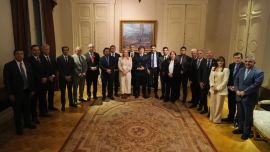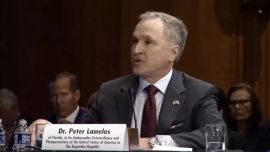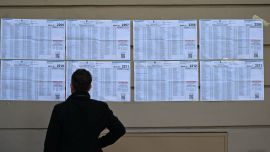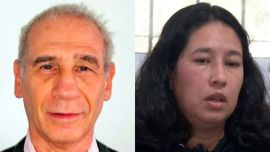Overcoming poverty and social inequality continues to be a developmental objective, both in Argentina and worldwide. The economic crisis occasioned by the health measures in response to Covid-19 implies a significant retreat from the few advances achieved during the 21st century.
Apart from being a threat to public health, these socio-economic disruptions jeopardise the livelihoods and welfare of millions of people in the long term.
In our country, the employment crisis imposed by the pandemic is based on a social structure of a highly segmented and precarious workforce, while the various political programmes over the last decades have failed to set in motion a model of development founded on spreading scientific-technological progress and on the incremental use of human labour, the main factors in the creation of wealth. Our productive matrix is becoming increasingly heterogeneous, unequal and polarised.
It’s not a question of thinking up strategies seeking relief from the effects of the pandemic but correcting the structural flaws which Covid-19 is aggravating and exposing. The full inclusion, both in the present and for the future, of the most impoverished sectors of society demands a new generation of political and market activities geared to achieving a fairer distribution of the capacity for social development. Within this framework there is a need to debate the segmented social security system, which (apart from finding itself in crisis) only reserves for the structurally excluded the so-called “programmes of social protection,” whose main function is to subsidise impoverished families economically.
It is necessary to rethink the systems of social protection, not only to make them suitably universal but also in the knowledge that the markets are in no shape to absorb the old and new population surpluses demanding jobs. It thus does not seem desirable to expect the main function of social security to be “calming” the “discarded” sectors via welfare programmes.
Post-Covid-19 is the moment for the population without access to old or new jobs to find decent employment for the development of economically productive and socially valuable activities. Not as a new strategy with the focus on public assistance but within the framework of the universal right to decent work while recognising the needs of a population left chronically and structurally outside the formal economy.
The idea is potent – in a world where there will be scant demand for labour-intensive work for poor workers, whose skills are excluded from the production of wealth, it is up to the state to meet the challenge by responding with subsidies but sustainably to the generation of welfare via decent employment. Within this framework a universal system of social security should include among its functions the explicit objective of preventing and reducing unemployment along with precarious and marginal work, giving a decent job to those who demand it in exchange for the legal minimum wage.
Currently, with this same perspective, the International Labour Organisation (ILO) is proposing as a global strategy, in the face of the employment crisis, a universal work guarantee comprising the fundamental rights of workers, a suitable lifelong wage, limited working hours and systems guaranteeing health and safety on the job. This guarantee is to constitute a protective floor which may be improved via collective bargaining and within the framework of a necessary social dialogue.
A system of this kind must guarantee that a fair remuneration is directly linked to productive work or social utility unless employment conditions improve in the market. For many workers broadening labour protection offers a transitional route from informal to formal employment while at the same time assuring that those workers enjoy the basic rights to a job and secure income. Along with the floor of social protection, a system of that kind offers a guarantee of job welfare, pushing more forceful measures for fighting poverty. In instrumental terms, all those unemployed or working in the social economy should have access to a decent job with a guaranteed minimum wage.
In order to achieve that, thousands of organisations of civil society, as well as multiple public organisms (national, provincial or municipal), can take charge of projecting, organising and developing those jobs of social interest. It is of primordial importance to steer and encourage the capacity for social solidarity towards job creation, equipping all people with the capacity to decide for themselves the many needs of social solidarity which require attending. For example, they could be jobs related to looking after children or the elderly, environmental clean-ups, recreation or the maintenance of public space. They should be geared to corporate social responsibility and compliance with the codes of social conduct thus established, stimulating their contribution to financing and sustaining this new system of social security founded on community work. Linked to these jobs, developing a system of professional training is also needed.
In the current context, this becomes increasingly relevant. The false ideological rifts distract from these debates, muzzling the real social demands, eroding social responsibility and making us waste time and valuable resources.
It is necessary that the myths in dispute do not continue legitimising increasingly unfair social inequalities and that Argentina’s post-Covid-19 agenda constructs a fair world for everybody. Once it has overcome the pandemic, our country must face the challenge of significantly reducing poverty and social inequality within a more complex national and global context. Only reforms which boost investment, knowledge industries and the production of wealth via jobs will make a destiny different from the present possible.
* Agustín Salvia is the director of the influential Observatorio de la Deuda Social of the Universidad Católica Argentina (Social Debt Observatory of the Catholic University of Argentina, UCA). This column, translated from Spanish, was originally published in the book Pospandemia edited by the CEPE (Centro para la Evaluación de Políticas Basadas en la Evidencia) of Torcuato Di Tella University.
























Comments